“I Will Never Do That Again”: Teachers Share Incidents With Students That Caused Them To Change Their Policies
Intentionally or unintentionally, teachers have a profound and sometimes lasting impact on their students.
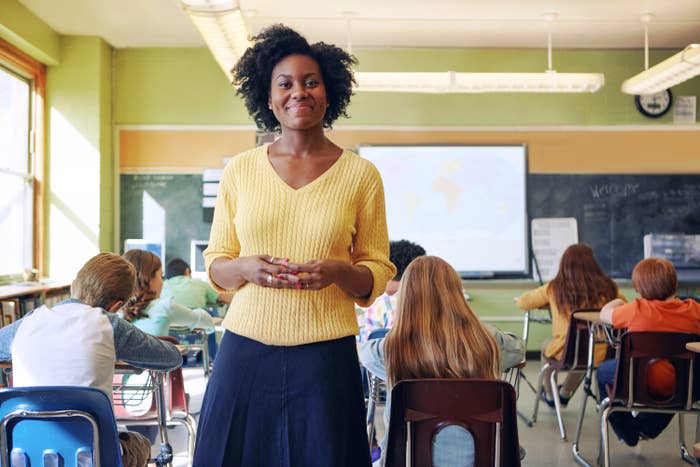
Recently, we asked teachers of the BuzzFeed Community to share an experience they had with a student that impacted them and, in turn, compelled them to change something about how they conduct their classes. In response, teachers opened up about the eye-opening experiences they've had:
1."When I was student teaching, my mentor teacher used a clip chart. (Students get their clip moved down the chart for 'bad behavior' and up for 'good behavior'). In my first year as a teacher, I used one, too, as that was what I was taught for classroom management in primary grades. One day, I had a student move their clip down, and they were devastated. A little boy in my class said: 'Don't cry, I always get clipped down. You get used to being the bad kid after a while.' My heart broke that something I did had caused a child to believe that he was a bad child. I took the clip chart down right then and there, and I told that little boy that he wasn't a bad person and that I was so sorry I had made him feel that way."

"That was the last time I ever used any form of public discipline for classroom management." —ashleyp459897ecc
2."I’m an elementary PE teacher in the South. It's really easy to just split up boys and girls to make teams. One day, a student came to me and said, 'What if we're non-binary?' I didn’t even think about that. Since then, I've stopped making teams based on gender."

3."I'm a high school teacher. When I first started, I tried so hard to stay out of the kids' 'drama' and just focus on teaching. I had a student who I liked, but I thought she was dramatic because she was often crying. Later, I found out that her stepdad was violent towards her as she protected her disabled brother, and CPS was removing her from her home. As a result, I basically instituted an 'If you're having a bad day, I have a quiet room to be alone' policy. If a student is upset, they know they can come in and ask or point to the closet, and they can sit in my closet with the door propped open and sleep or chill."
"They don't abuse it. A lot of them come out after a while and get back to work because they honestly just need a space where they can feel safe and maybe cry. There's no privacy in high schools, and sometimes, we all need to get it out and take a break." —raphaelahops
4."The day one of my seventh graders broke down because they couldn’t get their homework done changed everything for me. Their mom and dad worked three jobs apiece, there were four other kids in the house, and this kid took care of all of them while the parents were working. It’s been six years, and I haven’t given homework since then."

"It broke my heart. The homework is not worth it." —jacibailey
5."I have always tried to have an inclusive classroom when it comes to the holiday season — teaching about how others celebrate that time of year. You want to be excited and get the kids excited as well. However, until I worked in a low-income area, I never truly understood what a privilege celebrating the holiday season is. My fellow grade level teachers and I planned a gift $5 gift exchange with the kids. Only a third of my class brought anything, leaving the others left out. I quickly put together gifts for them to play with, but I will never do that again. Ever. No child should be made to feel less than others."

"It goes against literally everything we, as educators, should be doing." —Anonymous, Louisiana
6."I remember one student solving a long division problem a different way that taught in class, and getting marked wrong even though he got the correct answer. I also remember having this exact same scene play out in my childhood as my parents are first-generation Americans. I decided that instead of marking the work incorrectly, I would have these kids teach me and the rest of the class their methods, and students could use whichever was better for them."
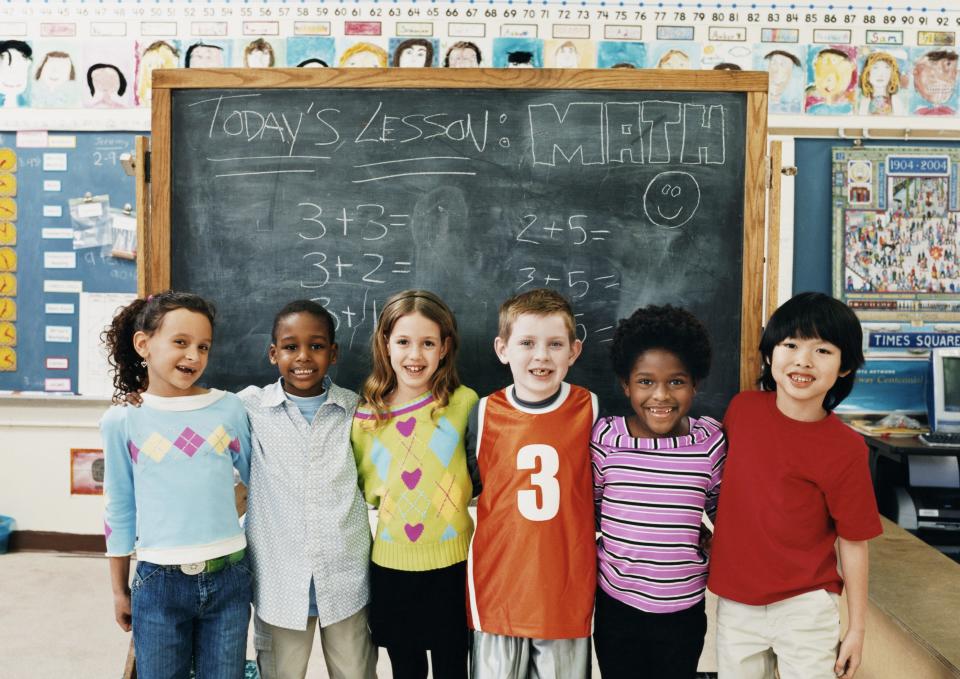
"One method of solving a math problem is not the be-all-end-all like most teachers teach. Several students are kids with immigrant parents and are taught how to solve math problems according to their country’s method. I think that allowing students to share their methods teaches better problem-solving skills overall." —Anonymous, California
7."High school English teacher here. When I was a student, my teachers would often do 'popcorn' reading, where students would read aloud and then throw the reading to their peers by saying, 'Popcorn so-and-so.' It was generally a fun way to keep students engaged. While student-teaching, I decided to have students popcorn read a passage from a novel. A student popcorned his classmate, who clearly looked very embarrassed and hesitated before reading aloud. Within the first few seconds, I could tell that this student must struggle with a form of dyslexia — he stumbled over many words and seemed to guess what word he was reading by the first two or three letters. After realizing how humiliating this could be for students who struggle with reading challenges, I now read passages aloud myself and then ask students if they would like to read aloud (which they can decline)."
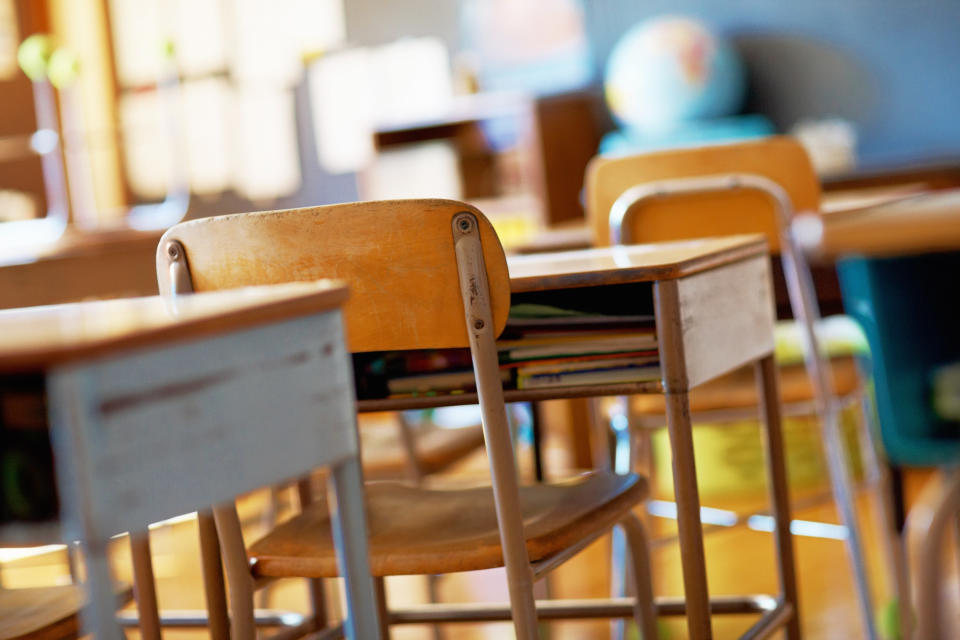
"I also gave that particular student the role of stopping and starting any audiobook I played." —rebeccab457333985
8."During student teaching, I learned to always love the kid no one likes extra hard. I had a student in my class that all teachers spoke ill of. He was 'never going to amount to anything.' All year, I went out of my way to treat him like he was super smart and capable of anything. I was the only class he ended up turning anything in for that year, and he really was brilliant. Students will generally rise to your expectations — whatever they are. So I always look for my outliers now, the ones who need someone to see them, fight for them, and believe in them, especially when no one else will."
"I also realized that when a student says their favorite hobby is sleeping, they aren't lazy like I used to assume. They are probably working a job to help put food on the table, and sleep is precious. I started pulling these students aside to customize assignments since they were carrying such a big load.
Also, I used to wonder what was wrong with a student until I started having parent-teacher conferences. Some kiddos have to overcome a lot just to show up to school every day." —Anonymous, North Carolina
9."A student was moving out of district and had forgotten to return a paperback novel (probably worth less than $10). My department head at the time was a real stickler for returning materials, so I told the kid he needed to have someone bring the book to school. The student’s father showed up obviously impaired — probably drunk. The poor kid was so embarrassed, and I felt horrible. Two things became clear to me: Kids are more important than materials."

"The second, kids and their lives are complicated." —Anonymous, Massachusetts
10."College prof here. I had a student who, at first glance, seemed like they were never paying attention (not participating, always on their phone, leaving class all the time, etc.). I confronted them about it and asked why they were acting like they didn’t want to be there. Their answer totally changed the way I view student behavior. They apologized and told me that they had anxiety about walking back to their dorm by themselves in the dark — it was a night class — so they’d get progressively more anxious and scared during class and couldn't concentrate. As a female who's felt the exact same way walking home in the dark, I totally understood. From then on, if we ever had one-on-one meetings or split the class in half, I always scheduled this student towards the beginning of class so that they could walk home in the light."

"I got a super sweet email from them come end of semester. You never know where a student's behavior is coming from until you ask!" —Anonymous, New York
11."I teach eighth-grade math. This past year was a struggle for many students. However, I had one student who seemed to be struggling more so than others. When given an assignment, this student would turn it in blank every single time. Turns out, he had incredibly severe anxiety, and seeing all of the problems on the paper would cause him to shut down. He knew how to solve the problems but couldn’t show me how he got the answer. For the next quiz, I had the teacher assistant monitor the class while I took this student to a separate room and verbally gave him the problems one at a time. He was able to verbally walk me through each problem correctly. I'm now adding a question to my beginning of the year student survey, 'How do you prefer to demonstrate your math abilities? Via pen and paper assignments or verbal demonstration?'"

"I had spoken to him numerous times, and he would just shrug his shoulders when I asked why he wouldn’t even attempt it. It wasn't until one day that I was finally able to get an answer out of him.
Not all students show proficiency the same way." —maliaswift02
12."Every day of my life teaching high school, I was the one who learned from my students. I'm never my best during first period and didn't do well with late students. One day, I got upset at a student who came late. In talking to her, I learned that every morning, she had to get all of her siblings up, dressed, and to school because her mother was not able to help. She taught me to be humble, ask questions, and, most of all, not assume that students (children) don't care or don't want to be at school. I apologized to her, in front of the class, and thanked her for reminding me that compassion, communication, and listening are the most important parts of teaching."
"It changed my view of the people I was responsible for. Do no harm. High school students learn in spite of us, not because of us. Anything that I can ask, do, or listen to, to help them is the job of a teacher.
Teachers have a profound influence on the lives of our students. A grumpy morning for me could turn into something unhealthy for the spirit and soul of these beautiful children in my charge." —Anonymous, California
13."My first year teaching, in 1991, I fussed at a student for not completing his homework. At the end of the class, another student stayed back, shook her head at me, and said, 'His lights got cut off yesterday.' I'm still in education, and I have never fussed at another student about not completing homework."
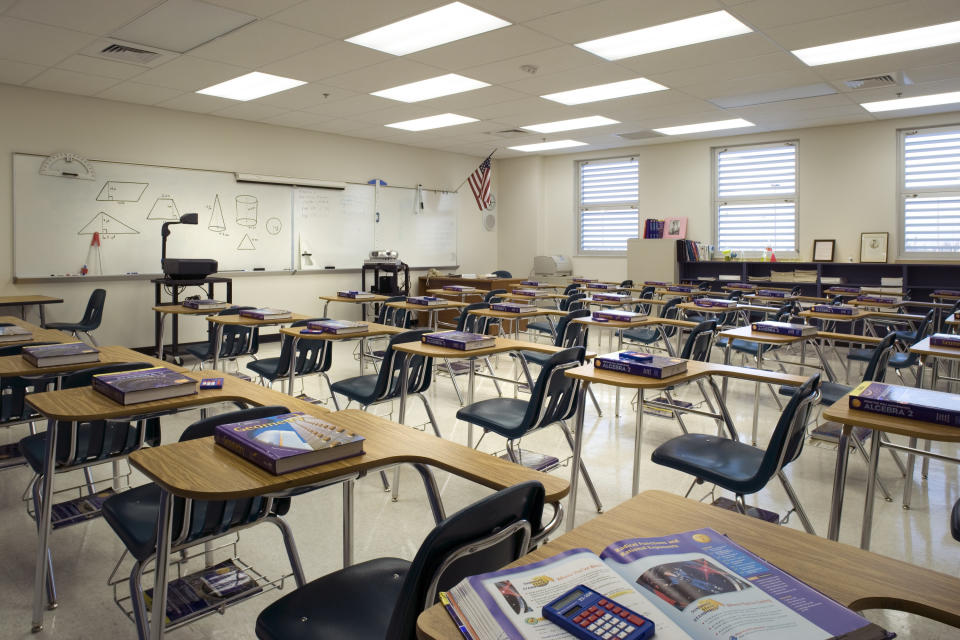
"Also, the other student is a teacher now, too." –Anonymous, North Carolina
14."When I first began teaching, I thought I needed to call home every time a student had a rough day. One day, I called home for a student, and the next day, they showed up covered in bruises from the beating they got at home. It was then I decided that unless it was something absolutely necessary to call home about, what happens at school stays at school."

—Anonymous, Indiana
15."I have a class rule that phones remain on silent and are not visible until the last five minutes of class. A few years ago, I had a student who was dealing with an intense home life and mental health issue. They had their phone out, texting, and I asked them to put it away multiple times. They looked at me and said, 'Stop asking me that. I’m going to fuck you up.' They didn’t do anything physical, but I had to report it to my principal and had a suspension hearing with the administration. During the hearing, this student’s father threatened to fuck me up, too. I realized that this young person was not only in a wild situation but also didn’t know any other way to behave. Their reaction wasn’t about me. It really drove home that — when we’re not being asked to save the world with no resources or support — teachers have a responsibility to treat our students like the people they are and give them support and empathy in whatever form they need it."

"I've always tried to make my classroom an inviting and safe space for all of my students. Part of that is setting boundaries within which they can explore and have choices. One of the boundaries is my phone rule — unless we’ve decided otherwise together, as they can always listen to music during work time.
Long story short, nothing happened, and the student was back in class the next day. When I met them at the door, we talked away from other students, and I told them that as far as I was concerned, we were starting fresh. I told them I was there to support and help them, and we never had another incident." —Anonymous, New York
16."Last year, during parent/teacher conferences, I was reviewing data of a student's reading progress. Unfortunately, he was about two years behind. I asked what kind of reading the child did at home. Their mom scoffed and said none. I was taken aback because I think reading is very important. She explained to me that she works 14 hours a day at a restaurant, and the student was doing his virtual learning in a booth. I didn't know that because he always had his camera off. She said she only has Sundays off and explained that that day was spent cleaning, doing laundry, and cooking. It really made me consider that not everyone shares my priorities."
"Of course, she wants what's best for her child, but she is in survival mode. This realization shook me, and I think about her often." —Anonymous, California
17."I teach high school English. I had a student one year with a pretty severe anxiety disorder. Their parents told me it was so bad that they might not even ask to go to the bathroom if they needed it. To make sure they felt comfortable, at the start of the year, I told all students that they were old enough to go to the bathroom without having to ask permission. I also added that if they just needed a break or to stretch their legs, they were free to leave the classroom as well."
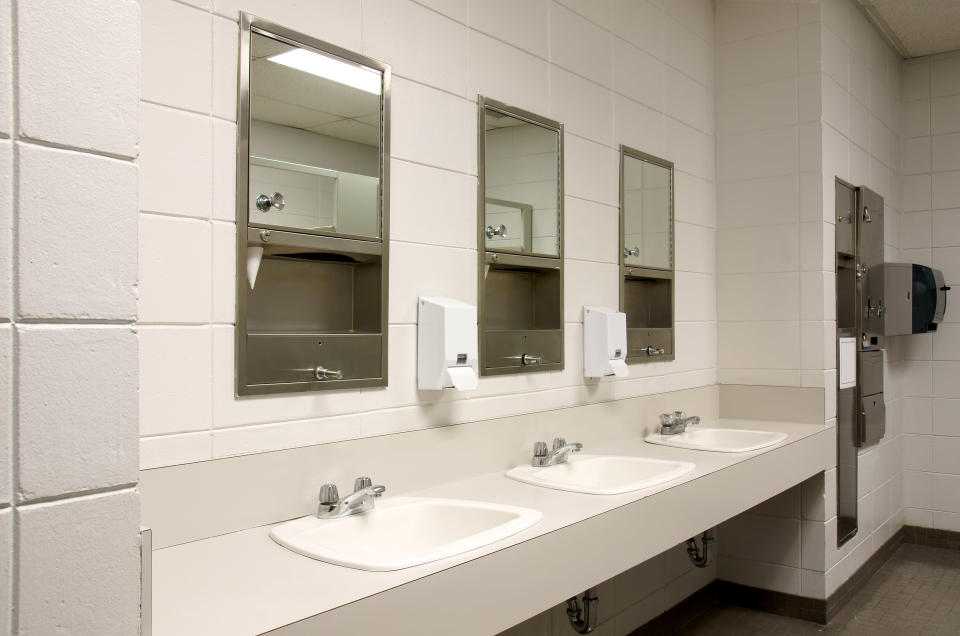
"I was a bit worried about students taking advantage of this, but no one did. The feedback they gave me was that they felt respected.
The original student's parents told me it really helped their kid feel more comfortable and autonomous. Now, I do it every class." —vkatiev
18."I noticed that every time we did group work, one student would never get chosen until all the groups were full and some group had to take them. From that point on, I have never let students pick their groups or partners. I choose them all."
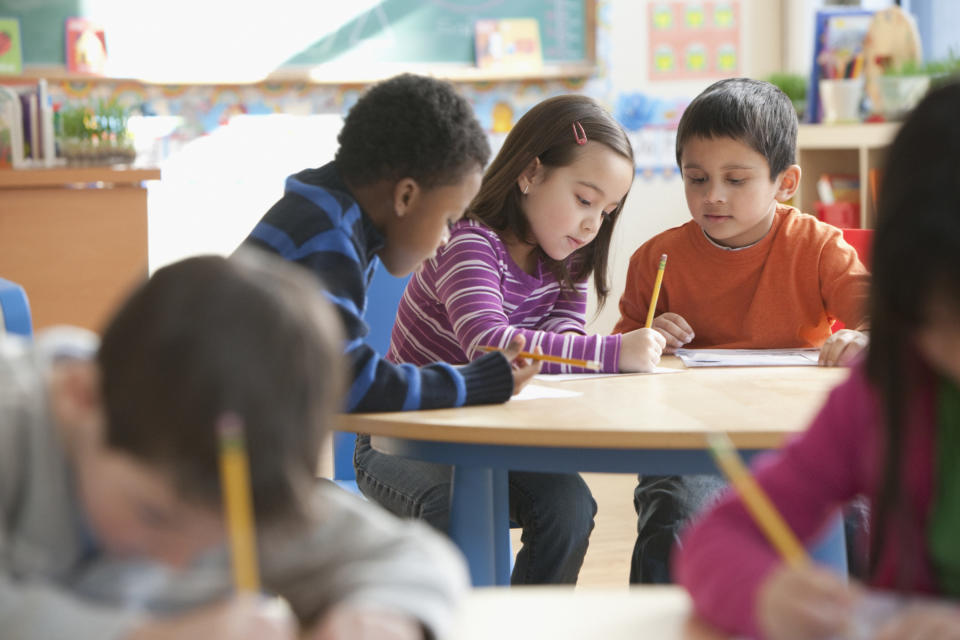
19."I don't call on students. No popsicle sticks, no cold calls, no calling on kids who aren't paying attention. So many students expressed their anxiety about speaking in front of the class to me — I teach a foreign language in middle school — that I took raising your hand out of my participation policy."

"As long as you're willing to talk to classmates in a group setting and to me one-on-one, you get a 100% in participation in my class." —Anonymous, Massachusetts
20."I am a primary teacher and have a student who was in a car accident with her mother. Her mother unfortunately passed away. I am now fully aware of the many different kinds of families out there and am trying to steer clear from 'mother,' 'father,' or 'parents' language. I also am not going to celebrate Mother’s Day and Father’s Day like we usually do."
"Too many kids out there don’t have a mom or dad to celebrate, and I think it is incredibly important to consider that." —Anonymous, California
21."I teach drama at a performing arts high school. In my first year, I had a student who never wanted to do anything, would come in late, and was generally disengaged. Three weeks in, I told her, 'It's pretty hard to fail drama, but you're getting there.' Later, she was working on a scene with a group and refused to do anything performance-related. She then asked if she could get credit by building a prop for her scene, as her group needed a bouquet. I said sure but it had to be worthy of credit. Twenty minutes later, she presented the most beautiful and intricate bouquet I've ever seen, entirely made out of paper and a paper towel roll. I then asked if she had any interest in working behind the scenes, and, for the next three years, she worked on every show and stayed after school to help build scenery. She even stage-managed two productions. It made me realize that students aren't bored, you just haven't figured out how to engage them yet."

"I'll always remember her. She'd even sprayed the bouquet with her perfume so that it would smell like real flowers. When I'd first asked if she had any interest in tech theatre or working behind the scenes, she was a little too cool to admit she was into it. Nevertheless, after those three years, she went on to college to study stage management.
To this day, I still keep that paper flower bouquet on my desk as a reminder. Not every kid learns the way you think they're going to. Not every kid is going to express talent in the ways you're accustomed to it. So never underestimate a kid." —Anonymous, New York
22."I was a TA for an ethnographic course that included a lot of discussions. The students were insightful and had great participation grades; the issue was their papers. Many had 'improper' grammar. The professor and I were frustrated because we knew how smart these kids were, so he told me to hold meetings with each student to help them. Now, the papers were written in a narrative, storytelling style, so the students were writing about their own experiences in the first person. It then dawned on me that the majority of the students were Black, and the papers were grammatically correct in AAVE. I realized we were putting expectations on the students that didn’t match their personal experiences. So I brought it up with the professor and pointed out that books in the first person are usually written in the way the narrator naturally speaks and thinks. My professor agreed it was unfair and changed the way he graded, and we noticed a difference in students' confidence."

"Sure, if these were academic papers enforcing a certain grammatical structure, it would make sense to grade that way, but these were first-person stories. So, we decided it was an unfair rule to force the students to write personal stories in a way that didn't reflect how they actually spoke.
My professor was happier, I was happier, and the students were happier. It was incredibly eye-opening as I had, had a really solid grammar foundation thanks to one very dedicated teacher in middle school. It made me appreciate that not everyone has the same experiences, and it's better to accommodate people's needs." —nicoles40e5cb895
23."I’m a teacher in a pediatric behavioral/mental health program. I recently was sent a student whose file said he was threatening violence and eloping from the classroom. One day, he blew up because his black marker 'wasn't black enough.' We tried to reason with him, but he was really upset so we gave him space. He calmed down and returned, and things were fine. Days later, something was wrong with his lunch, so he announced he was going home. He walked out of the class and the building. We went after him, and he continued calmly explaining that his lunch was wrong, so he was going home. It was very matter-of-fact. Instead of yelling about safety and forcing him inside, we talked about how he didn't know the way home and might get lost. We suggested going back inside and seeing if his mom could bring a different lunch or pick him up. He willingly came back, got super into a project, and completely forgot about going home. He was on the spectrum. That was it."

"I have been getting more students who are autistic but being treated as if they are just bad or defiant kids. This student was my most recent example. His file included all sorts of challenging and dangerous behavior. We didn't see any behavior like that — he’s quirky but super smart. I actually got curious and talked to his previous teacher. She spoke about him like he had 'BAD KID' stamped on his forehead. It was awful. She should be fired.
He was smart as heck but had that rigid need for things to be his way. Forcing him to do things that went against what he needed to do or have was going to escalate him. Validating him and honoring his intelligence by working out a 'better solution' has stopped his outbursts entirely. It's not hard." —crookedflowers
24."It was a grade one to two class. I asked the class my first ever question, and a student gave me a totally wrong answer. I said, 'No, that’s wrong.' Watching eagerness turn to disappointment was enough to never say an answer is just wrong again. I felt physically sick. Usually, I now say something like, 'It’s going in the right direction but not there yet,' 'I can see how you might think that,' or, 'I like that you are looking for a connection to what you already know.'"

"Besides, if I taught the concept better, the student probably wouldn’t have gotten confused." —Anonymous, Alaska
25."I used to represent kids in the juvenile justice system. Sometimes, I'd help clients enroll back into school when they got out of jail. Most schools didn't want them and didn't hide it. I took one kid to tour a school, and I'll never forget it. He'd been through a lot and was a tough guy, but that whole tour, they were so awful to us. He kept shrinking closer to me until he was glued to my side. We couldn't get out of there fast enough. He cried in my car about how ‘they don't want me here, and I should just drop out.’ It broke my heart. This continued until our sixth school tour. There, the principal had clearly read the file I sent. She knew his name, came out to greet us, and showed us around. She was so welcoming and genuinely happy to help him get back into school. She kept up with him the whole time he was there, called me when he was struggling, and clearly cared. I don't know who cried more when he graduated, her or me."

"Most schools viewed my kids as a problem. I found out later that this particular principal had started out as a teacher in the county juvenile detention center — where she got to know kids involved in the justice system and the compounding trauma so many of them were dealing with. She also came to understand how anxious many of them were about going back to school when they had a lot of educational disruptions, were behind, and had a negative reputation among peers and staff because of their justice involvement.
She made it her mission to embrace and welcome kids back into school who were leaving the justice system — which she viewed as her own small way of disrupting the school-to-prison pipeline. I don't know what Chicago Public Schools paid her, but it couldn't have been enough. She was the most incredible person and educator. Her influence absolutely made the difference between my client dropping out and graduating, as I'm sure it also did for countless other kids." —lawyerlady
26."Once, a student was given detention for wearing a sweater that wasn’t the proper school sweater. I found her crying in the classroom later that day — where she told me she couldn’t afford the school sweater. The next day, I kept a stock of school sweaters in the back of the room for anyone who couldn’t afford them."

—Anonymous, Maryland
27."My high school science teacher changed his bathroom policy. He used to not allow anyone to go to the bathroom during his class. One day, a girl asked to go to the bathroom, and he said no. She had to go up to his desk and whisper, to a male teacher, that she had just gotten her period and really needed to visit the bathroom. He felt so bad and had never even considered that, so he immediately changed his policy."

28."When I started teaching, one of my students came out as trans. I hadn’t thought that an angsty, emo, purple-haired student would be the one to connect with me, a conventionally preppy, milk toast teacher. She opened my eyes to my own prejudices and, among other things, taught me to be careful with subtle gendered and exclusive language. Instead of asking a girl, 'Is there a guy you have a crush on?' I could ask, 'Is there someone special you have your eye on?'"
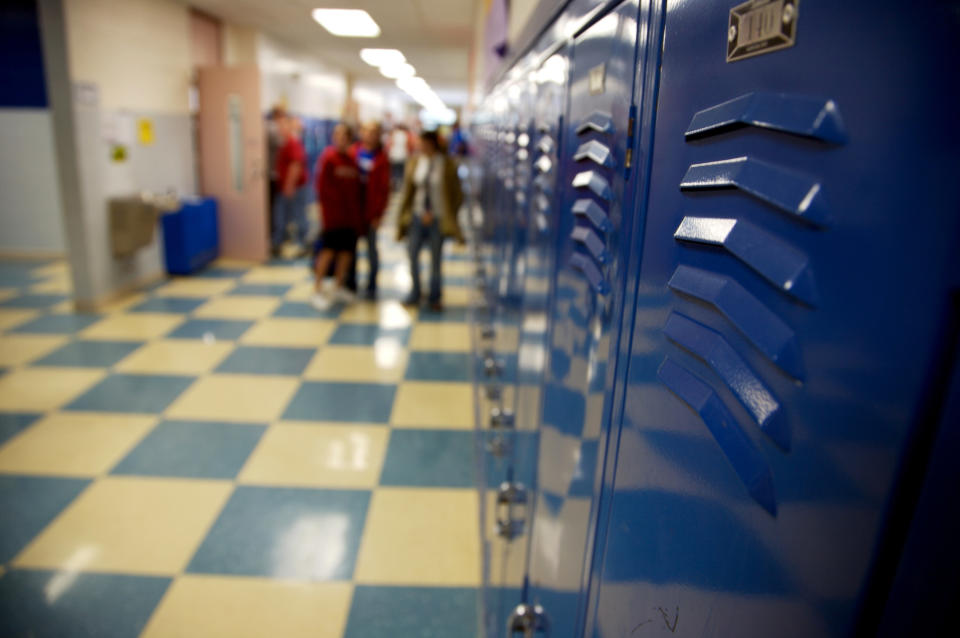
"Additionally, this opened my eyes to comments that can also make students without conventional families feel isolated. I no longer specify that kids might 'check with their parents,' and now ask if 'you need to ask an adult or guardian.' I’ve since also made a point to talk about politicians, authors, or scientists using female pronouns.
Simple phrases can carry great weight, and the power of inclusive wording can change the course of a student’s trajectory toward success and happiness. The more we normalize phrases like, 'If the president wants, she can veto a bill,' the more possible this scenario becomes." —Anonymous, Maryland
29."It was my first year teaching at a Philadelphia public school. Our school had a uniform policy that banned hooded sweatshirts. I had one student who came into class for first period every day with a hoodie and consistently refused to take it off. Being a first-year teacher, I was told to not seem weak and be consistent in enforcing rules. Each day he came in with the sweatshirt, I’d ask him to remove it. He wouldn’t, and I'd call a dean to have him removed from class. It was a toxic loop that went on for a few weeks. Finally, a veteran teacher came to talk to me. She told me she knew that this particular student was experiencing intermittent houselessness and was currently at a spot that did not have heat. 'This baby is cold, not defiant.'"
"It smacked me like a Mack truck. From that moment on, I realized how important it is to build relationships with students so that you know what’s going on in their home life. It’s the only way to be an effective teacher." —Anonymous, Pennsylvania
30."My first teaching job was as a long-term substitute for seventh grade. I was newly married, and my husband was deployed. On Veterans Day, I thought it'd be a great opportunity to talk about why we 'celebrate' and how it was personal for me. The kids were supposed to write cards for vets during a free period. One kid was snarky and fought me on the assignment, saying 'soldiers are murderers,' or 'they started these wars, it's not fair.' As a new teacher and a new military wife, I was shocked, confused, and hurt. I didn't know what to say. I told him to not do the assignment since it made him upset. Later, I told other teachers about this, and one motherly teacher spoke to him. Turns out, he was spouting rhetoric from home — which was obvious since he was saying nonsensical 'facts' about the military — but he was also in tears because he felt awful, and his peers were confused about his seemingly outward hatred for veterans."
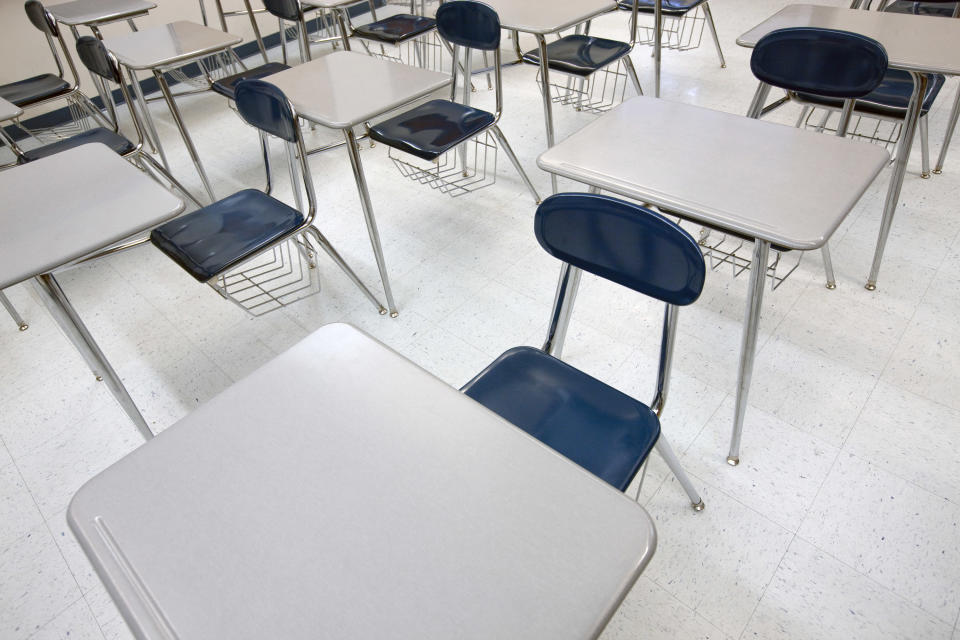
"I learned that no matter how good intentions are, intuition is stronger. Listening and talking to young people to find out their perspectives is incredibly important." —lgrillo
31."I had a student in my second year of teaching who would often be disruptive, silly, and generally a pain much of the time. He often wanted and needed my attention, so I gave him a notebook and said he could write in it whenever he finished his independent work, and I would look at it when I wasn't teaching or giving directions. I was absolutely floored by some of his writing. He wrote about others wanting him to be tough but that wasn't what was in his heart, wanting to make better behavior choices, apologizing for his and his classmates acting out, and even asking if I read what he wrote. I assured him I did read it, and this became a dialogue journal where he could express himself and I could reinforce that I knew he was a good kid and that believed in him and his capability to make good choices. Having this type of connection allowed me to level with him when issues came up, and I did see overall improvements in behavior."
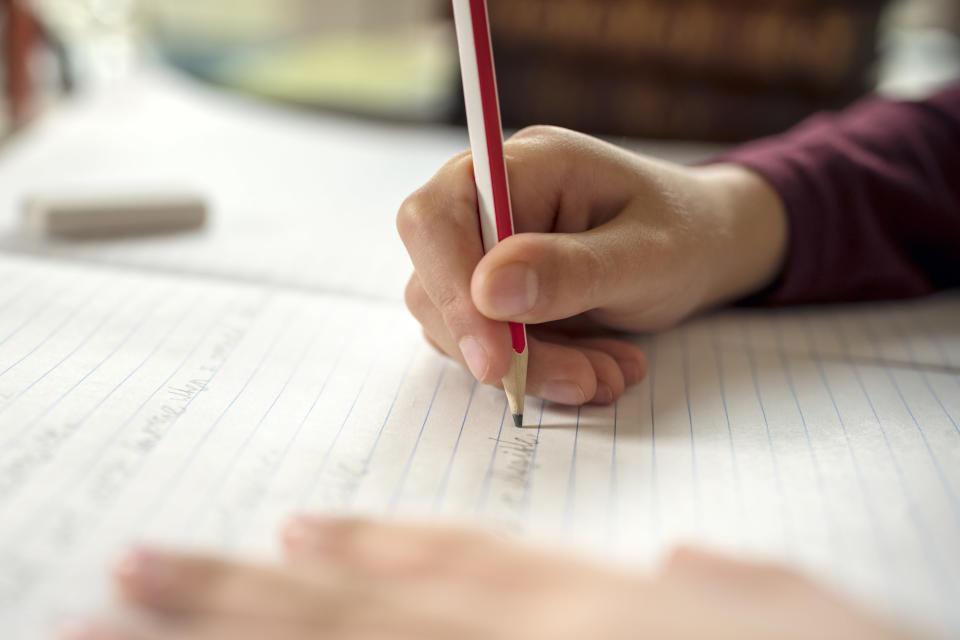
"He was in first grade but seemed like an angsty teenager stuck in a seven-year-old's body. Later on in the year, I found out about some messed-up things happening at home. It hit me that I was likely the main positive adult role model that this kid had. It was incredibly humbling and made me realize how utterly essential relationship building is to teaching.
My husband would always say that year that this kid was my favorite student, and, honestly, he's not wrong. The next year, I made sure to touch base with the kid, but he moved and transferred schools pretty early into second grade. I still think about him and wonder how he's doing; I truly feel I made an impact on him and hope that impact has continued to stick with him." —Anonymous, Illinois
32."I became a teacher after I had two children of my own. I had to do a 20-hour practicum in a sixth-grade class, working on reading and comprehension with a particularly tough set of kids. I gave them an assignment that I was going to check on the next day. Out of seven kids, two of them had their assignments. Naturally, I took on my 'teacher face' and asked why they didn’t do their work. There were excuses like, 'I didn’t have paper at home,' 'I had too much work to do in the house,' and, 'I didn’t know how.' So I responded, 'Why didn’t you ask your parents for help? I’m sure they would have helped if you’d asked,' and, 'You can always take paper from another notebook.' Only one kid spoke up, and his answer will never leave my memory as long as I live. He said, 'You have to be one of those cookie-baking, PTA mothers who cook dinner every night and do laundry and shit like that, huh?'"
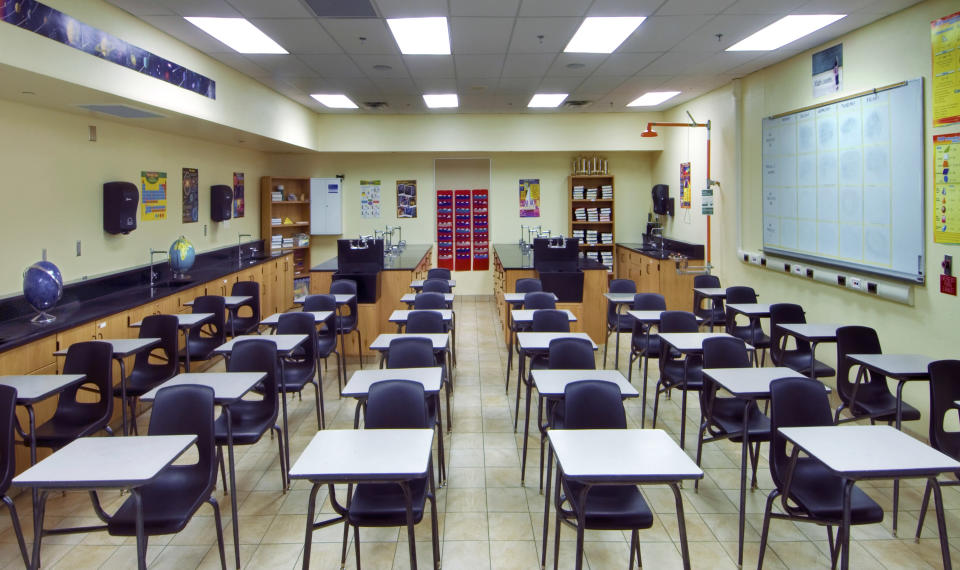
"I told him that yes, I’d baked my share of cookies and tried to fix supper at night when I wasn’t just too tired. He then told me that his mother wasn’t ever home, he didn’t know where his dad was, and he took care of his brothers and sisters.
The others in the group then talked about the various but very similar conditions they each lived in. I knew these conditions existed, sure. But in my own little town? In my kids’ school?
I had a whole new outlook from then on. I didn’t graduate for two more years, but I knew then to look for and appreciate the different circumstances kids came from. I never again assumed anything about kids, and that was a really, really good thing to learn." —pointyblackhat
33."I was thoughtlessly using the phrase 'parents' in my classroom. In my second year teaching, I had a transfer student who was a foster child. He was very withdrawn and not interested in connecting because he had been bounced around. The first time I said 'parents,' I saw him look away. I felt awful because I just hadn’t been thinking. From then on, I said 'your grown-up.' The very next time I sent something home, I said 'your grown-up,' and he smiled a little."
"He began opening up a little in class and even made a couple of friends. It was a little thing for me to do, and it really helped him feel a sense of sameness with his peers.
I always look at every bit of information about my students' background now so I can make them feel safe and included." —Anonymous, Utah
34."I think the situation that changed how I teach the most is falls under the category of empathy. It starts with really getting to know your kids. Mine are teenagers. Kids are working sometimes late at night and sleep in class. Understand why they are tired. I have had kids who had family members die of COVID. So have I. Love on them. I've had kids in the hospital. Go visit them. I have had students whose parents were murdered. Go to the wake, and love on them. Many of my kids have issues at home. Listen to them. As a teacher, I love my students like my own kids — praise when they do well, and disappointment when they misbehave. But I never give up on my kids."

"Understand that all kids have a gift, and help them to find it. Love them. You are going to get hurt, but you need to forgive if you are going to reach these kids." —Anonymous, Illinois

